Succulent, tender roasted Cornish hen recipe with a Mediterranean garlic and spice marinade that makes all the difference! This no-fuss recipe is great for a special gathering: Give each person their own, or split the Cornish hens in half to feed a crowd!
Who doesn’t love their own personal whole roasted chicken?! That’s the beauty of the lesser-known and under-appreciated Cornish hen.
Cornish hens may not be your first choice for a weeknight meal or even a holiday meal, but that doesn’t mean you shouldn’t consider it! As a bonus, with my tasty Mediterranean garlic spice rub. It’s the same rub I use in my now famous Leg of Lamb! Made with loads of fresh garlic, warm spices, and a splash of bright lime juice,, this roasted Cornish game hen recipe makes a very special meal without breaking the bank!
Cornish game hens are a popular alternative to turkey for small holiday meals and gatherings But how similar is their flavor and texture to turkey? Let’s take a closer look,
What Are Cornish Hens?
Cornish hens, also known as Cornish game hens, are essentially just very young chickens, usually around 4-6 weeks old. They weigh between 1-2.5 pounds each, making them the perfect individual-sized poultry option.
Unlike a fully grown chicken or turkey, their flavor profile and texture is milder and more tender due to their young age. While Cornish hens are sometimes confused with being a game bird they are simply a hybrid breed of chicken.
Flavor Profile of Cornish Hens vs. Turkey
The predominant flavor notes in Cornish hens are:
- Mildly sweet, delicate flavor similar to chicken
- Subtle gaminess but much less than fully grown chickens
- Tender and juicy texture
Turkey, on the other hand, has a more robust flavor profile:
- Stronger, richer flavor than chicken
- Noticeable gaminess
- Can be drier with a chewier texture if overcooked
So while Cornish hens and turkey are both poultry, Cornish hens have a milder, more delicate flavor and texture reminiscent of chicken rather than turkey.
Why Choose Cornish Hens Over Turkey?
There are a few key reasons why Cornish hens make an excellent alternative to turkey:
-
Smaller size: With just 1-2 servings per hen, they are perfect for smaller holiday gatherings. No huge leftovers to deal with.
-
Quick cooking time: A 1.5 pound hen may take only 50-60 minutes to roast compared to 3+ hours for a 15 lb turkey.
-
Tender and juicy: Their delicate texture stays moist and tender when cooked properly. Much harder to overcook than turkey.
-
Milder flavor: With subtler flavors than turkey, Cornish hens can appeal to those who find turkey too gamy.
-
Lower cost: Cornish hens can be a more budget-friendly option for small gatherings than purchasing a large whole turkey.
So if you are cooking for just a few people, want a quick and foolproof main dish, or are looking for a milder tasting poultry, Cornish hens can be the perfect choice over turkey.
Cooking Methods for Juicy, Flavorful Hens
To get the most flavor and moisture out of your Cornish hens, use these cooking methods:
-
Dry brine: Salt and air-dry the hens in the fridge overnight before roasting. This seasons the meat and helps it retain moisture.
-
High heat: Roast at 400°F-450°F to crisp up the skin and lock in juices.
-
Aromatics: Stuff the cavity with lemons, herbs, garlic, and other flavor boosters.
-
Baste: Brush hens with melted butter or oil during roasting for added moisture and flavor.
-
Rest: Let roast hens rest at least 5 minutes before carving to retain juices.
Delicious Ways to Season Cornish Hens
Beyond just salt and pepper, Cornish hens shine when seasoned boldly. Try flavor rubs like:
- Lemon-herb rub with thyme, rosemary, garlic, lemon zest, olive oil, salt, and pepper
- Cajun seasoning with paprika, cayenne, garlic, onion, oregano, thyme
- Moroccan chermoula marinade with cilantro, lemon, garlic, cumin, and olive oil
- Jerk seasoning with allspice, thyme, chili peppers, garlic, and ginger
Stuffing the cavity with lemon wedges, fresh herbs, chopped garlic, or quartered onions also adds lots of flavor from the inside out.
What to Serve with Cornish Hens
These flavorful side dishes pair deliciously with roasted Cornish hens:
- Roasted root vegetables like carrots, parsnips, potatoes
- Green veggies like brussels sprouts, green beans, or asparagus
- Wild rice or quinoa pilaf
- Cranberry sauce or relish
- Dinner rolls or cornbread
For a stunning and easy holiday meal, roast Cornish hens with vibrant fall veggies and herbs. Their moist, tender meat with crispy browned skin is sure to satisfy.

What is a Cornish hen?
A Cornish hen (also known as Rock hen or Cornish game hen) is basically a smaller breed of chicken (usually around one or two pounds in weight). Because they are younger, Cornish game hens are also more tender than their larger chicken cousins. They also have fewer calories than your average chicken.
The flavor difference between chickens and Cornish hens is almost negligible: Cornish hens have a slightly milder flavor, but they basically taste like the chicken you’re used to eating.
Because of their small size, Cornish hens are perfect as a serving for one person or split in half when served with some delicious sides. I love pairing this easy roasted Cornish hen recipe with my Cinnamon Roasted Sweet Potatoes; Italian Oven Roasted Vegetables; or Brussels sprouts…Lots more ideas below!
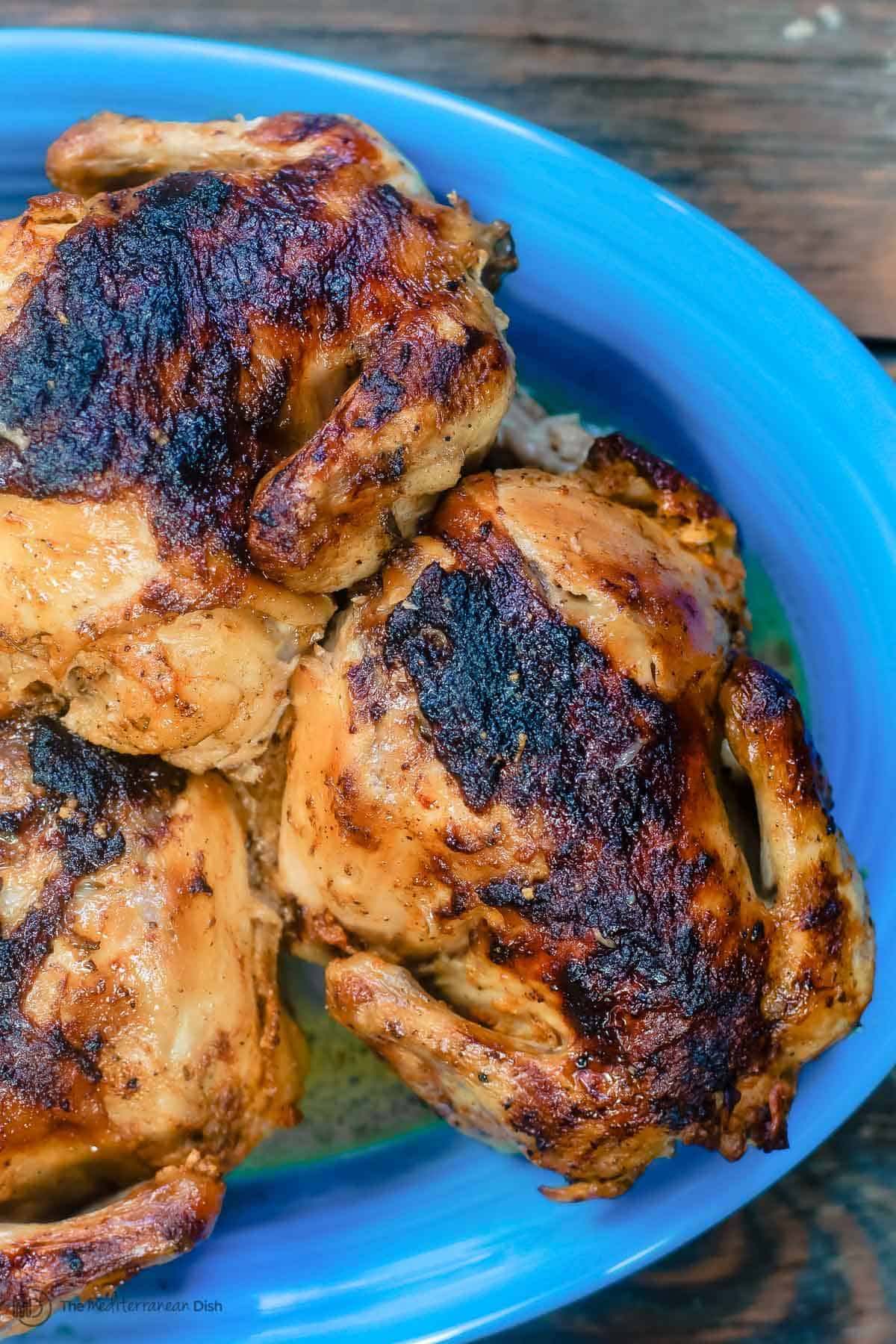
How to cook Cornish hens
- Make the marinade. Place the garlic, spices, lemon juice and olive oil in the bowl of a large food processor fitted with a blade. Blend until you reach a nice “pasty” consistency.
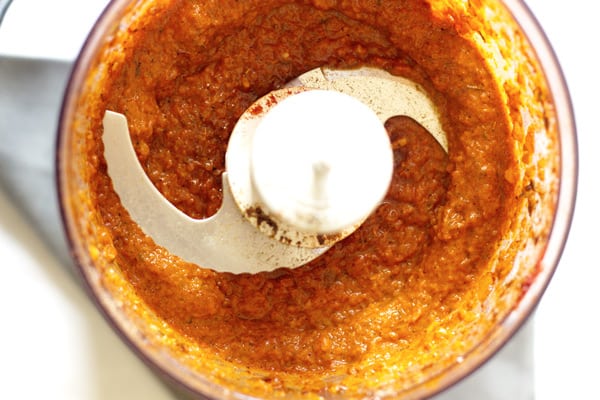
- Apply the marinade to chicken. Generously apply the marinade to each of the Cornish hens (and remember, for best results, to apply under skin and in cavities).
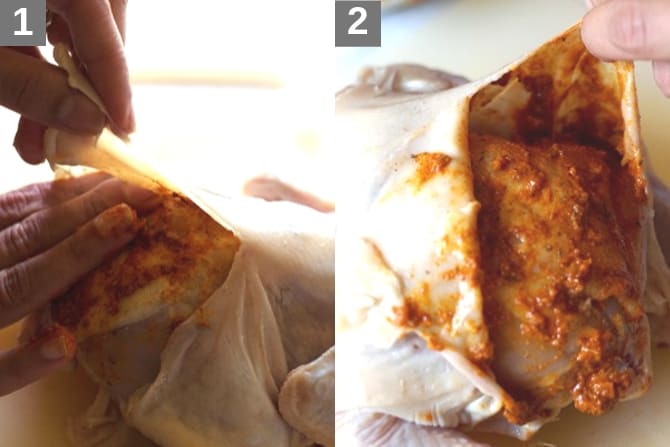
- Brown the hens on all sides. I like to use a cast iron pan for the perfect skin.
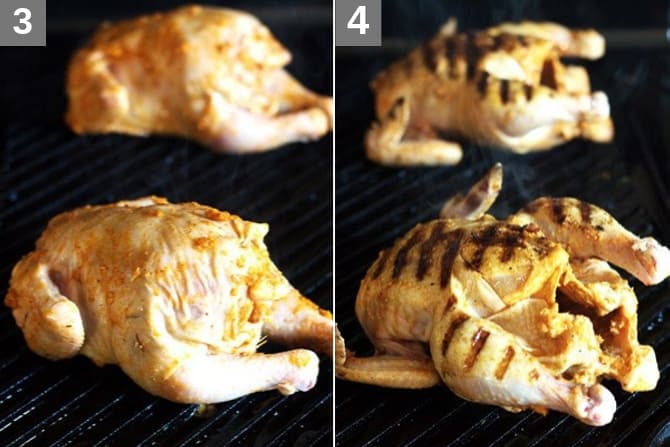
- Stuff the cavity with onions and celery. Allow the Cornish hens to cool briefly so you’re able to handle them, then add the chopped onions and celery into each cavity.
- Arrange the hens in a cast iron skillet or baking dish. Add 2 cups broth from the sides of the skillet. Roast in a 425 degrees F heated oven for 1 hour (or until the hens are cooked through and juices run clean), basting every 15 minutes with the broth. If you have a cooking thermometer, cooked Cornish hens will have an internal temperature of 165 degrees F.
- Allow the Cornish game hens to rest before serving. When they are ready, remove the hens from the oven and cover loosely with aluminum foil for 15 minutes. Don’t skip this step, as resting helps the juices redistribute in the meat, which will result in succulent meat. Transfer to a platter and serve.
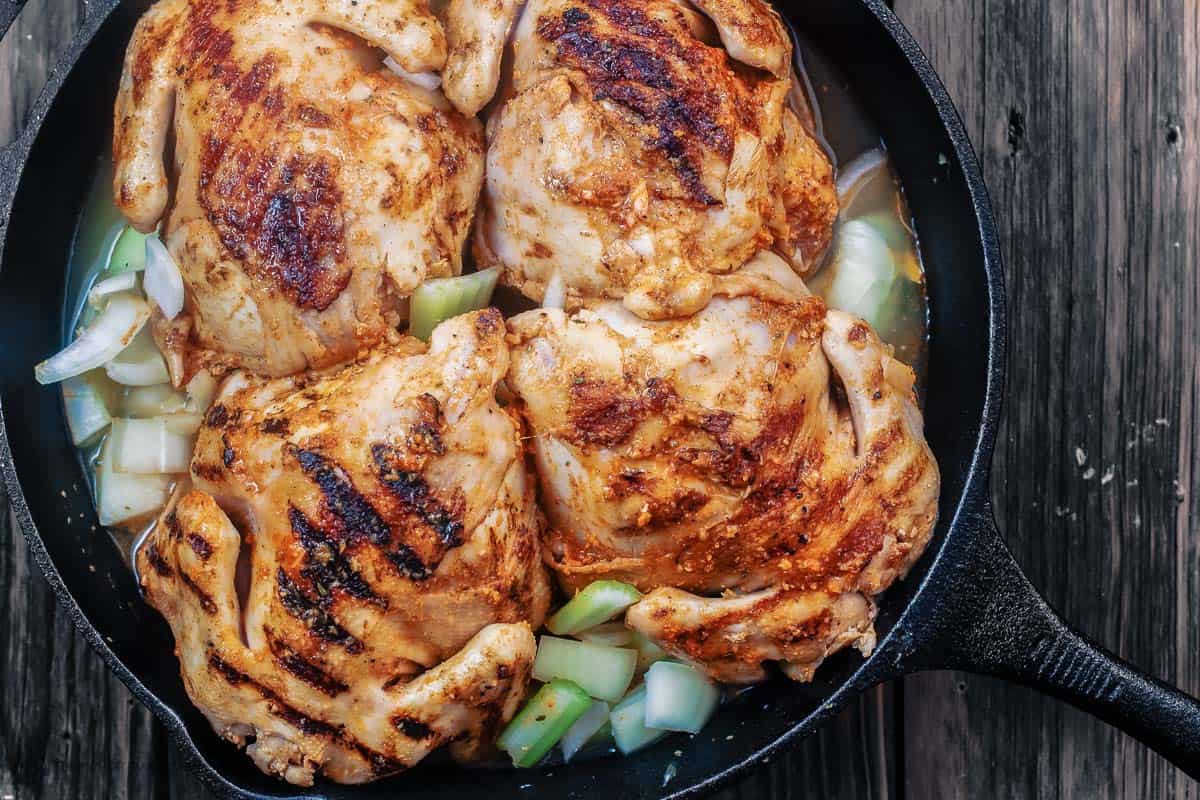
Thanksgiving Tradition Debate Turkey vs Cornish Hen – Which Reigns Supreme
FAQ
Which is better turkey or Cornish hen?
What do Cornish hens taste like?
Is a Cornish hen a baby turkey?
Is Cornish hen basically a baby chicken?
